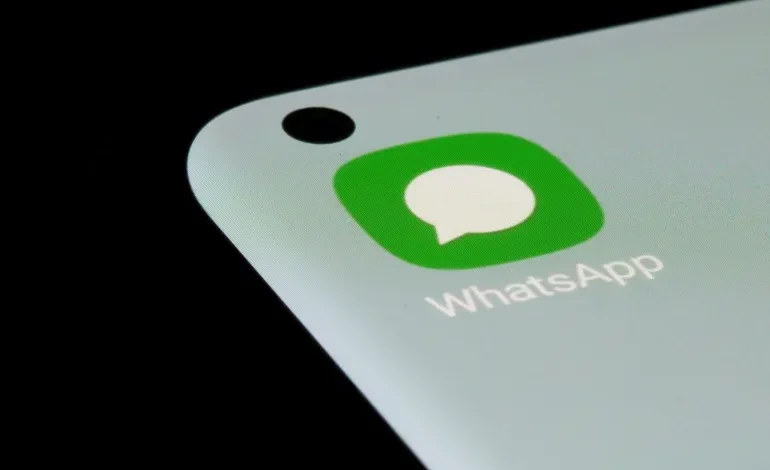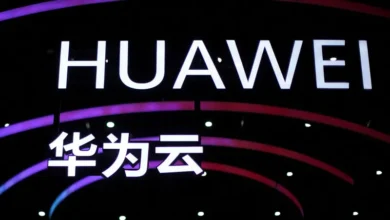WhatsApp novelists use messaging app to write and sell books in Zimbabwe

Sitting on a plastic chair, Kingston Dhewa stares intently at his smartphone, his thumbs jabbing furiously at the screen.
He stops briefly and looks up to attend to a customer at his outdoor fruit and vegetable stall in Budiriro 5, a busy, low-income suburb south of Zimbabwe’s capital Harare.
When the customer leaves, he grabs his phone and resumes typing in a Google Doc.
It’s around midday and the sun blazes mercilessly. Next to him, an elderly woman throws heaps of peeled and neatly cut potatoes into a gas fryer.
Loud local gospel music blasts from a solar-powered radio.
Dhewa presses on writing.
“Customers disturb my train of thought,” he tells Al Jazeera.
Dhewa has been writing for hours now and has to proofread before sending the latest chapter of his new novel to awaiting readers.
After carefully poring over the text for 20 or so minutes, he stops, highlights everything, and copies and pastes it to the WhatsApp messaging app where he sends it to his more than 1,000 followers.
Dhewa is one of the new crop of authors in Zimbabwe selling novels on WhatsApp to customers.
‘I could be writing more’
While some people write in English, Dhewa chose the local Shona language after he was inspired by other Shona authors. His books have a traditional, pre-colonial setting, and generally explore life and themes related to African rural life.
The 52-year-old first tried his hand at writing in high school and almost got published in 1992. But he could not afford the fees needed to publish traditionally.
When COVID-19 hit and authorities in the Southern African country imposed a national lockdown to stem the spread of the virus in March 2020, Dhewa found himself stuck at home. To pass the time, he read some stories that were being shared on WhatsApp – a trend that had started some years before, but really took off during the pandemic.One group he had joined, called Read and Write, was a common group for budding writers and readers to share their work and recommendations.
His first novel was well received and he earned enough money to pay rent and buy food for his family. He charged each reader $2 for the whole book.
Since then, Dhewa has written and published 43 novels via WhatsApp groups, he says – stories that range from 35 to 45 chapters long.
“I spend three to four hours writing a chapter on average. And I could be writing more if I had a laptop,” he says. For now, he is unable to afford a computer.
Authors like Dhewa begin by writing a story and releasing it on the app in serialised form, typically one chapter at a time. Readers interested in the author or genre typically join.
“I now have four groups that follow my writing on WhatsApp,” he says, as the app has a limit of 1,024 members per group and he has to create new groups to reach his readers as his popularity grows.
Thousands of readers
In the Budiriro 5 suburb of Harare, Clever Pada, a fan of another WhatsApp author, Pamela Ngirazi, opens and reads a chapter of her new book.
Pada runs a small tuckshop in the area where people sometimes gather. He is currently reading Ngirazi’s new book called Prior Replica, written in English.
Ngirazi, who has more than 21,000 followers on WhatsApp, is a full-time writer and very popular.
While Dhewa prefers sharing stories in Groups – that enable two-way communication, with all members able to send and respond to messages – Ngirazi uses a WhatsApp Channel.
Channels are one-way broadcast tools within the app that allow businesses and individuals to communicate with large audiences without the recipients being able to reply directly. Subscribers join the channel to receive messages, which can include text, images, videos, documents and links.
For chapters 1 to 20 of Prior Replica, Ngirazi shared it to the channel for free. But chapter 20 is her last offering.
“Prior Replica is now on sale from chapter 21 to final chapter and will be available on Boom Application that we will give you when pay for the book,” a message sent on the Channel reads.
The Boom Story app streamlines the e-publishing process, making it easier for authors and publishers to produce and distribute digital content.
Pada finds Prior Replica, which is a romance novel, quite intriguing and plans to pay to read the rest of it.
“It doesn’t seem like I have much of a choice now,” the reader says.
To access a full book, readers have to make a payment to the author via mobile money transfer services. Some authors also allow readers to buy their content by paying with mobile phone airtime.
Upon confirmation of payment, the author sends the full book to the reader, typically in PDF format, via WhatsApp. This ensures quick and direct delivery of the content.
e-Books market
Some 5 million of Zimbabwe’s 16 million people use WhatsApp. As of early this year, there are more than 2.05 million social media users aged 18 and above, representing approximately 22.8 percent of the adult population, according to a DataReportal Global Digital Insights report.
In a country where the economy has tanked and high inflation has eroded purchasing power for the majority, the high cost of data forces many Zimbabweans to use WhatsApp as a social tool.
Meanwhile for authors, the messaging app has proven to be a boon as they are able to charge directly for their services. By leveraging the app’s popularity, they are also able to engage and monetise their works.
With the rise of digital platforms and devices, more people around the world, including Zimbabweans, have access to e-books and digital reading options, such as e-readers.
But the economic crisis in the Southern African country means the majority of Zimbabweans do not have disposable incomes for such services and internet access. For instance, 250MB of data – which enables about three hours of internet use – costs $1. In comparison, salaries are not high. A teacher earns close to $300 a month while other average workers earn less.
“Of course, we can turn to Amazon, but how many Zimbabweans can buy stuff on Amazon?” Philip Chidavaenzi, a Zimbabwean author and publisher, tells Al Jazeera via a messaging service.
In 2023, the African e-books market was approximately $173.7m in revenue, with the average revenue per user at $1.47. By 2027, the number of e-Book readers on the continent is expected to reach 147.3m, with the market growing at a compound annual growth rate (CAGR) of 3.76 percent to reach $201.3m. User penetration in the African e-books market is forecast to increase to 10.7 percent by 2027.
‘Elitist’ traditional publishing
Despite the popularity of self-publishing on WhatsApp, Chidavaenzi does not consider it a threat to traditional publishing.
“This would not be considered serious because of the possibility of breaching industry standards,” he says.










